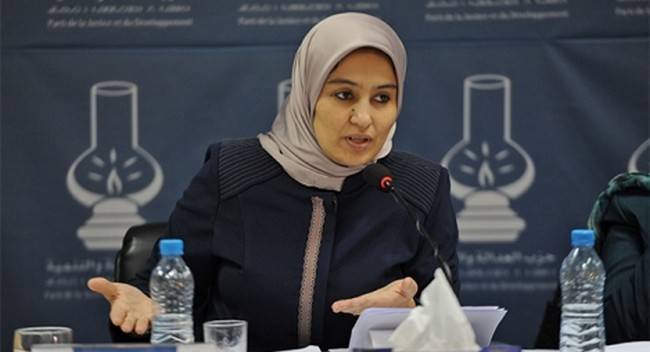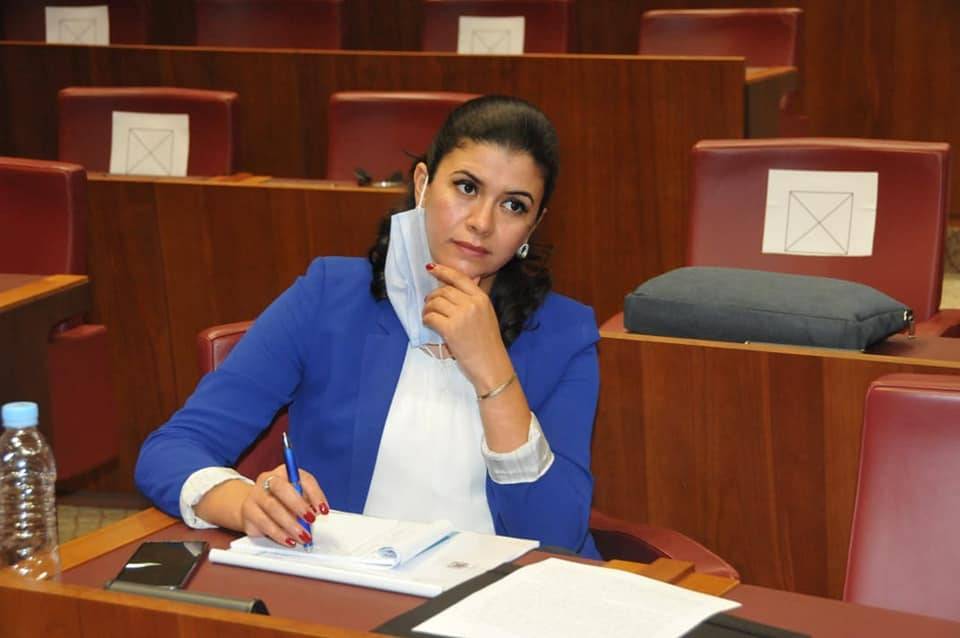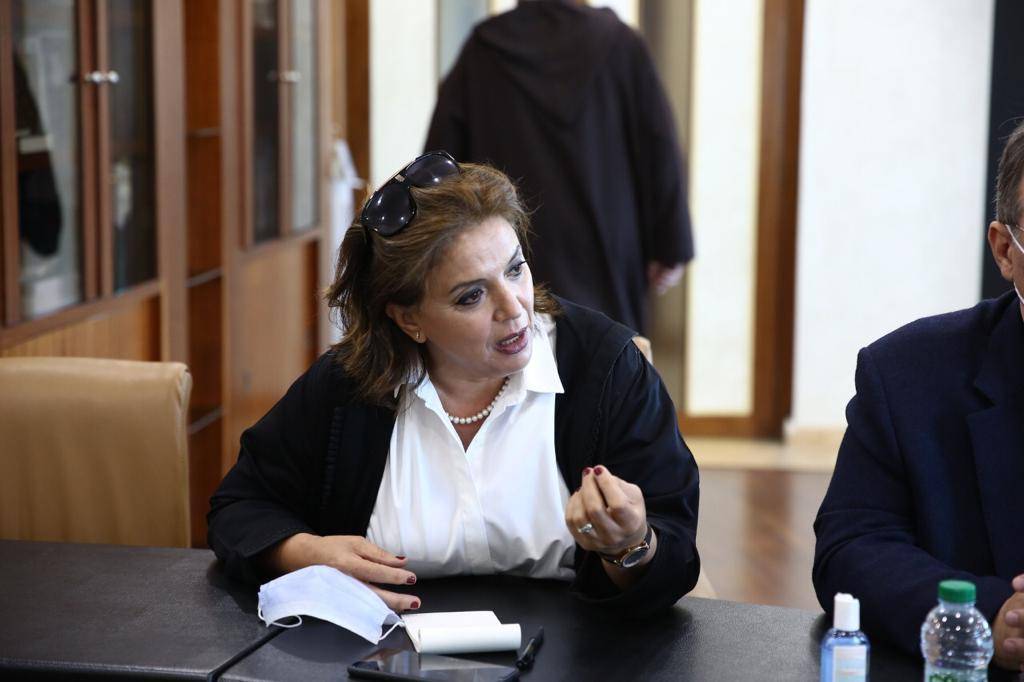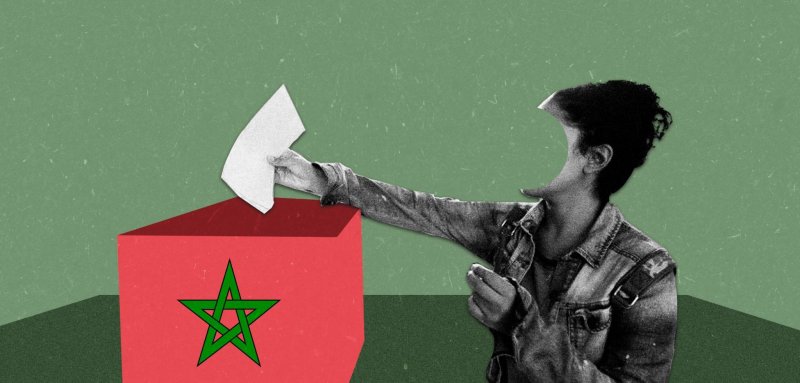During every session of the Moroccan Parliament and within municipal councils, the presence of women seems feeble. Within these institutions, women do not hold half the seats, even though it is a part of their constitutional right. That is why they are raising, more and more, the slogan, “Equality is not lost when those behind it remain steadfast!” Just a few months away from the legislative elections, they are rejecting the patriarchal culture that has them living in men’s shadow.
In this context, some of them are advocating for their rights via the coalition platform of “Mounassafa Daba” (or ‘Equality Now’), a civil initiative comprising a large number of human rights defenders and associations. Last December, it submitted a national petition to the Speaker of the House of Representatives calling for the introduction of an equal treatment law ̶ in the first initiative of its kind that aspires to create the mechanism for the inclusive and participatory democracy stipulated in the 2011 constitution.
The women of the coalition trust that their voices will be heard by lawmakers, as Khadija al-Kour, a member of the coalition, tells Raseef22: “What came in the new electoral system is the result of a long struggle of the women’s movement at the level of civil society – both within the women’s organizations of the parties as well as within the parties themselves. The proposals that were presented are mentioned in the literature and documentation of the parties, and I am certain that they will obtain Parliament’s approval.” But will the feminist resolve stand up to men?
The ongoing debate – about whether to explicitly implement equality between women and men in the laws regulating governing bodies – is often accompanied by another counter debate titled “Efficiency Before Equality”. Are women less efficient in #Morocco?
Undermining to Serve a Patriarchal Agenda
Ten years following the constitution of chapter 19 – which stipulates “the pursuit of the principle of parity between men and women,” with the creation of a “body for parity, equality, and combating all forms of discrimination” – the least of what might describe the outcome of women's representation in institutions is that it is “modest”, especially at the level of territorial authorities or municipalities.
The ongoing debate – about whether to explicitly implement parity between women and men in the laws regulating elected institutions and governing bodies – is often accompanied by another counter debate titled “Efficiency Before Equality”, the tagline is being used by some male political actors from within the country’s parliament in the face of female parliamentarians. This specific occurrence took place in February during a discussion over the means of appointing members of the National Authority for Probity, Prevention and the Fight Against Corruption (INPPLC).
Female jurists and parliamentarians from different ends of the political spectrum refuse to let the discussion of “parity” or “equality” slip into the justification of “efficiency” that politicians are trying to use as an excuse, especially since the same criterion was not upheld during the nomination and appointment of men for various state responsibilities. Female politicians who value the positive discrimination mechanism that enabled women to enter the House of Representatives aspire to put an end to the male mentality reluctant in strengthening the presence of women’s competencies within elected institutions.
Within Islamic, as well as left-wing parties, women are forming a united front to counter the questioning of their credibility and/or legitimacy. Boutaina Karouri, a member of parliament for the Justice and Development Party, describes this debate as “invalid, because when we say ‘representation of women’, we do not want representation on the grounds of gender. Instead, we are talking about women with competence.”
In an interview with Raseef22, Karouri wonders, “Why is it when we talk about appointing men, the question of competency is not even raised, as though it is a problem posed only when it comes to women?”
The MP sees that “this discussion holds deep discrimination against women within its folds – as if women are inherently incompetent, and as if we will have to sacrifice competence if we raise the issue of gender equality.” This is a mistake according to Karouri, who adds, “there is an easy resistance and a resorting to the literal wording listed in Article 19 of the constitution, which is replicated and applied as it is,” – meaning the pursuit of parity and equality instead of its actual application. However, “the constitution,” she notes, “is supposed to lay down the general principles, and laws should implement them, but the issue is falling upon deaf ears.”
The “faltering” path, according to Karouri, is not only justified by cultural mentality, conflict, and the circle of interests that bully political parties into not nominating women on a wider scale, but also some constitutional circumstances, such as the decisions of the current Constitutional Court and the former Constitutional Council.

Boutaina Karouri
The MP, who is also a member of the Justice and Legislation Committee, explains that the wording within the Constitutional Court’s decision regarding the national list that automatically grants women a number of seats in parliamentary elections, contributed to curbing the parity process rather than consolidating it. This was based on the idea of positive discrimination, because “every time we want to increase the percentage of women’s representation, we find representatives and actors who return to the council’s decisions to limit the increase in the representation of women, which is a kind of explanation that was not properly encouraged.”
However, the MP for the left-wing Progress and Socialism Party, Fatima Zahra Barassat, acknowledges the positive aspects of the mechanism of discrimination during her interview with Raseef22. According to her, “We are standing before draft laws that will be discussed in Parliament during the upcoming period, and among the matters that need to be emphasized is the presence of women at the municipal leadership level, since the percentage of women’s leadership of regional councils rose from zero to 16.6% between 2009 and 2015, while it hasn’t in community councils, where the women’s presence at the head of local councils remains insignificant.”
The Secret in the Voting Pattern
In light of the new debate over the upcoming legislative and municipal elections and their role in granting women their rightful status, it seems that the electoral division of districts and the voting pattern are obstacles opposing the acceleration of the pace of parity.
This is how MP Boutaina Karouri expresses her reservations regarding increasing the number of electoral districts that resort to individual candidacies and nominations: “Because it is known in international studies and comparative experiences that the voting pattern for electoral lists is motivating, as well as encourages and expands the political representation of women.”
Female representatives from different ends of the political spectrum refuse to let the discussion of “equality” slip into the excuse of “efficiency” that politicians are using, although the same isn’t applied in appointing men in state positions.
Beyond voting patterns, the political actor and activist holds political parties accountable for nominating women who have significant “political stakes, concerns, and essential causes to defend. [They must also] reflect the struggle of a large number of associations, human rights defenders, and activists, as well as the long process of advocacy for equality. [The parties should] not just invite women into parliament simply they are women. This projects a weak image of the inclusion of women and does not help the future struggle to support their representation on the path of achieving parity.”
For her part, MP Fatima Zahra Barassat considers the allocation of one third of the seats to women in every labor council or region – as was approved by the Moroccan Ministerial Council – “a significant entry point meant to enhance the presence of women at the communal level, because ever since the 2015 elections, we have found that women’s presence at prefectorial and regional levels remains sub-par.”

Fatima Zahra Barassat
This welcoming reception from the MP comes after the government approved a draft organizational law amending the two organizational laws for the House of Representatives, as well as for the election of the council members of territorial authorities. To Barassat, this advancement in the legislative process related to women’s representation is “a significant new development, given [women’s] weak and almost non-existent presence when it comes to the level of territorial communities.”
Furthermore, the country’s House of Councilors, also known as the second chamber of the Moroccan Parliament, “does not keep pace with the developments of the 2011 constitution,” according to Karouri. “Therefore, appropriate formulas must be found within the framework of reviewing the laws regulating it, in order to raise the female presence there in the same way that the House of Representatives was able to gradually achieve, because it does not exceed 12%.”
Karouri proposes that the national list for women’s participation be replaced by a regional one, which will support the advanced regionalization as well as the regional dimension present in the constitution and will facilitate the political representation of women at the local level. The MP stresses that changing the electoral laws will be decisive for parties in the upcoming elections, during which the percentage of women’s representation should not stoop below one-third, in order to maintain the course of achieving parity.
Changing laws must also affect the organizational law of the government, since it does not give specific quota for women within the government that ensures a high number of female ministers. For a woman to be PM is a unique experience in Morocco
The Dream of Leadership
Despite the technical aspect and details that distort the rights of Moroccan female politicians, feminists still maintain great hope in the “Mounassafa Daba” coalition. Khadija al-Kour says, “The parity initiative in question is not only related to the representation of women in political institutions. Rather, it concerns all areas – so that we can ensure an organized course for various issued laws that do not cater to women’s needs.”
The activist reiterates the importance of the legal framework for equality, which “will ensure a unified common reference that takes into account the issue of gender equality when formulating laws, as well as define the conceptual framework and creates value within society. It also enables the construction of indicators for measurement that will allow us to know whether or not we have progressed on the subject.”
According to the speaker, who is also a founder of the Authenticity and Modernity Party – the second strongest political force in the House of Representatives – the “change of laws must affect the organizational law of the government as well, because it does not give a specific quota for women within the institution of government, that can ensure that the number of female ministers is high. For a woman to be PM is a unique experience in Morocco.”

Khadija al-Kour
The realization of this feminist political ambition requires – in the first degree – the interaction of political parties as well as their financial and moral support for the candidacy of women in various circles, including the local. This is something that the political advocate herself agrees with; she stresses that a “disconnection with the dominant patriarchal mentality in institutions that are related to political representation” must be achieved, while, in tandem, Morocco must strengthen the “positive discrimination tool during this transitional stage to ensure the proper representation of women, even though it does not truly reflect their aspirations.”
The feminist director looks forward to the parliament’s interaction with the “Mounassafa Daba” petition, especially following the meeting recently held by the Petitions Committee with members of the coalition and the remaining male and female parliamentarians. The meeting took place in Parliament to expand the debate on the legal mechanisms in order to achieve parity, considering it among one of the sustainable development goals to be achieved by 2030, along with the strengthening of incentives for the political, economic and social empowerment of women. What does the future hold for women in the country; will the winds peacefully blow in the direction that the women so desire, or are there storms brewing on the horizon?
Raseef22 is a not for profit entity. Our focus is on quality journalism. Every contribution to the NasRaseef membership goes directly towards journalism production. We stand independent, not accepting corporate sponsorships, sponsored content or political funding.
Support our mission to keep Raseef22 available to all readers by clicking here!
Interested in writing with us? Check our pitch process here!



